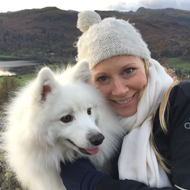BVA president addresses annual Scottish dinner

BVA president Justine Shotton addressed attendees at the associations Annual Scottish Dinner.
BVA president Justine Shotton addressed attendees at the association's Annual Scottish Dinner on Tuesday, reflecting on the avian influenza outbreak, the future of the veterinary workforce and pet welfare.
During her speech, Ms Shotton praised the work of veterinary teams across Scotland to make animal health and welfare a priority despite having to contend with COVID-19, Brexit and a recent surge in pet ownership. She did, however, warn that that their efforts had come at a significant and unsustainable cost to the profession’s capacity and wellbeing.
She said: “If we are going to cope with ongoing and new or unforeseen challenges ahead, we need action now to improve recruitment, retention and rates of return to veterinary work, to ensure that all existing vets can feel supported, safe and rewarded in their careers, and to encourage future vets from all walks of life to follow in our footsteps.”
On creating a “flexible, resilient and future-proofed workforce,” Ms Shotton called on the Scottish and UK governments, animal owners and the profession itself to carry out a range of actions. These included ensuring that new vet schools are adequately funded, to reminding animal owners to “Respect your vet”.
Speaking on the avian influenza outbreak, Ms Shotton said that with disease control sitting within the scope of the proposed new Scottish Veterinary Service, it was vital to ensure systems collaborate closely with the rest of the UK and beyond, warning:
“I don’t have to tell any of you around the room tonight that diseases and animal welfare problems don’t respect borders. It will therefore be critical that the new service has systems that collaborate and liaise with the rest of the UK, and beyond, on disease surveillance, data collection, and information sharing. We’re engaging closely to ensure that veterinary expertise is at the heart of these new proposals.”
On animal welfare legislation, Dr Shotton said that BVA welcomed the Scottish government’s commitment to banning the sale and use of glue traps, describing them as “inhumane devices, which subject trapped animals to prolonged pain and suffering."
She advocated for similar action against snares, which may cause severe and unnecessary suffering to animals, including pets and protected wildlife.
On pet welfare, Dr Shotton acknowledged some significant campaign wins in the past year, including BVA successfully lobbying alongside others for the UK Government to take action against the “barbaric and purely cosmetic practice” of cropping dogs’ ears.
She said that BVA will now be turning its attention to the rise of canine fertility clinics in Scotland and the rest of the UK.



 The Animal and Plant Health Agency (APHA) has updated its online reporting service for dead wild birds.
The Animal and Plant Health Agency (APHA) has updated its online reporting service for dead wild birds.